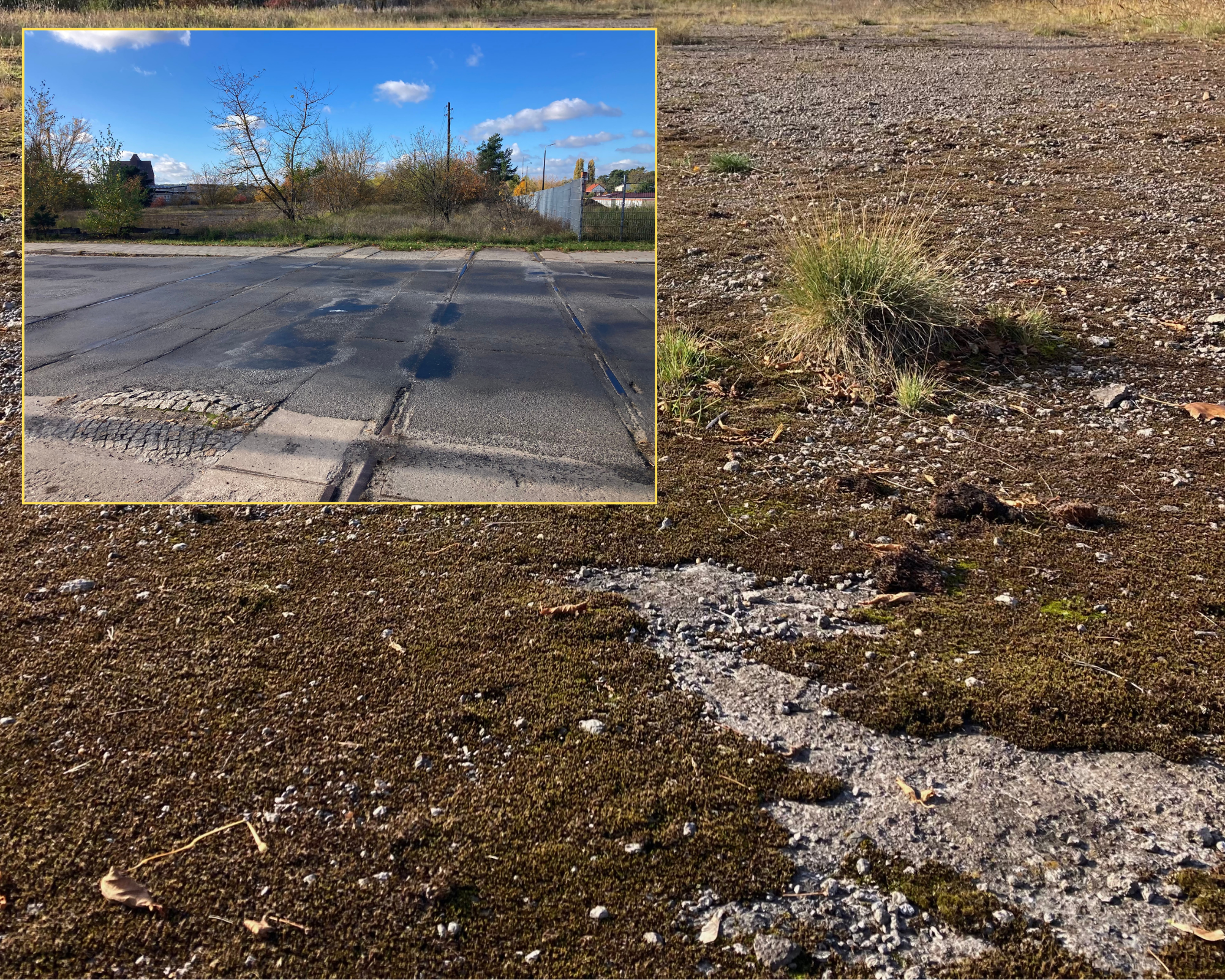Founded in 1950, Eisenhüttenstadt is a former model socialist city located along the German-Polish border. Since the collapse of socialism, this city—once a representation of an idealized socialist vision—has experienced ongoing material and social decline. Once emblematic of progress, its now-abandoned socialist infrastructures and post-industrial wastelands reflect the shrinkage of Germany’s inner periphery.
The field recording captures the multifaceted dimensions of this decline, emphasizing the sonic and material textures of Eisenhüttenstadt’s marginal spaces. Through the practice of walking and listening, the remnants of the past embedded in the landscape become tangible. In the background, the sound of vehicles traversing the remnants of former rail tracks echoes, a reminder of the routes that once transported materials between the steelwork factories. Following the path of the rails, which now intersect with the road, one arrives at a vast wasteland. Here, the echoes of its former purpose can be sensed through the textured surface—the gravel and debris shifting and crunching with each step, occasionally interrupted by the quieter sounds of footsteps on the moss that now covers the stony ground.


